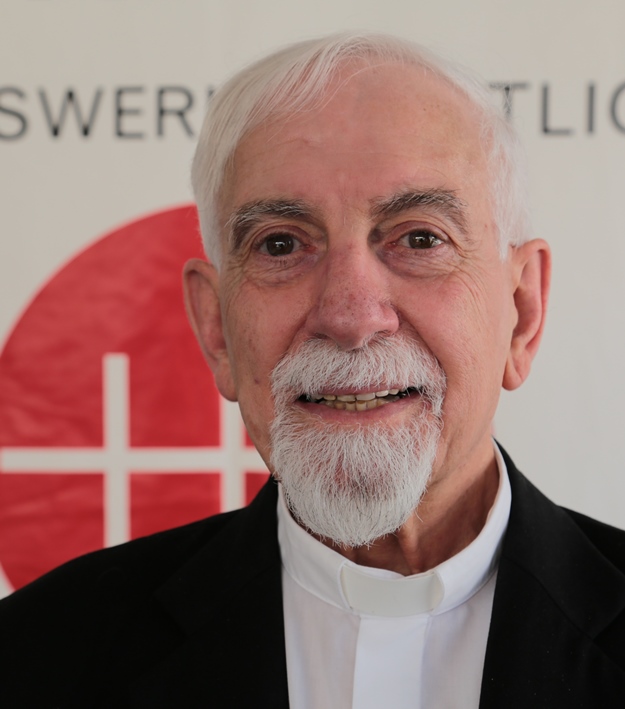|
Pope Francis in Egypt: 'Re-knitting the ties with Islam'
Wednesday, April 26, 2017
"Islam is the second largest religion in the world, with more than 1.5 billion Muslims present in almost every country of the world. We cannot ignore it."
Father
Samir Khalil Samir, an Egyptian Jesuit priest and noted specialist in Islam, teaches
at the Institute of Oriental Studies in Rome. He spoke with international Catholic
charity Aid to the Church in Need (ACN) on the eve of the visit of Pope Francis
to Egypt (April 28-29, 2017).
By
Mario Bard
What
would you say to Pope Francis in regard to his approaching visit to Egypt?
Would you tell him to stay in Rome or to go ahead with his visit?
Being the man he is, I think he must go. He
is not someone who is afraid. At the same time, considering the possibility of
an assassination attempt, I believe that Egypt will do the impossible to
protect him and ensure that there are no dangerous elements around – if only
for their own sense of honor. Looking at it this way, I think that everything
should go ahead normally.
Moreover, for a long time now he has wanted
to re-knit the ties between the Vatican and Islam. This is what he told me personally
when I had a conversation with him a few months ago. He told me, “Why is it
that I insist on the fact that Islam is a religion of peace? Because we need
first of all to rekindle our friendship with the Muslims and with Al Azhar [University].”
Why
is it necessary to “re-knit ties?”
Let me recall the context: there was the
attack in Alexandria on the Coptic Church at Christmas, six years ago. Someone
blew himself up and there were dozens of deaths. A few days later Pope Benedict
XVI, in a meeting with the ambassadors at the Holy See, said: “I call on the
president of the Egyptian Republic to protect the Christians.” In response,
Imam Ahmed el-Tayeb, the rector of Al Azhar, declared that it was unacceptable
for the Pope to interfere in Egyptian politics and broke off relations with
Rome.
Today, after a number of fruitless attempts,
relations have resumed. And it was the principal aim of Pope Francis to
re-establish relations with Islam and with the Al Azhar University in
particular, which represents the majority of Muslims in the world, Sunnis–who
account for 80 percent of all Muslims. The institution represents an
unassailable moral and intellectual authority for them.

Why
is it important to maintain an interreligious dialogue with Islam?
First of all, Islam is the second largest religion
in the world, with more than 1.5 billion Muslims present in almost every country
of the world. We cannot ignore it. Second, because Islam is a monotheistic
religion, alongside Judaism and Christianity. And hence we have to be able to
engage in dialogue with them. That is the essential aspect. It is not a
question of a political goal. It boils down to saying: let us endeavor to
understand one another. In just the same way, we maintain a dialogue with the
Jews.
People are saying that the Middle East is
in the process of becoming emptied of Christians. What can be done to change
the way the wind is blowing? Even many Muslims do not want this to happenMost
Muslims say: “We need the Christians.” Recently there was a radio broadcast in
Egypt which impressed everyone. The theme of the 8-minute program centered on the
Christian schools which educated the intelligentsia of Egypt in the 19th
and 20th centuries.
People can also look at Lebanon, which is
the only country in the Arab world with a certain degree of parity [between
Islam and Christianity], precisely because it was the Christians that built the
nation—even though today they represent no more than 35 percent of the
population. In the country’s Parliament, Muslims want to retain the balance of
64 Muslims and 64 Christians, because they maintain that this is essential. It
is recognized as essential by all the Muslims who think about it.
Besides, as to the disappearance of
Christians in the Middle East, in Egypt it is they who are, so to speak, the
indigenous ones! People are aware that if they wish maintain a national
conscience, they cannot eliminate the Christians.
Unfortunately, for reasons
that are political, economic and religious, the Christians are leaving, more
and more. What is happening at the moment is what’s wanted by ISIS. But they
are fanatics. However, as a whole, Muslims are not fanatics. They lack the
courage to say that [these terrorists] should be arrested. Instead, they say: ‘”it
has nothing to do with Islam.” But that does not solve the problem.
Nonetheless, in their heart of hearts, the majority of Muslims say [of the
deadly attacks on Copts]: “no, it is shameful!”
ACN
is making it possible for 3000 young people from all over Egypt to come to
Cairo and participate in the visit of Pope Francis.Their journey began April
25, featuring liturgical celebrations at various shrines on the way to Cairo. The
group is comprised of 250 representatives from every Catholic Coptic diocese in
Egypt, in addition to 1,000 participants from Cairo.
Father Samir, SJ; ACN photo
|